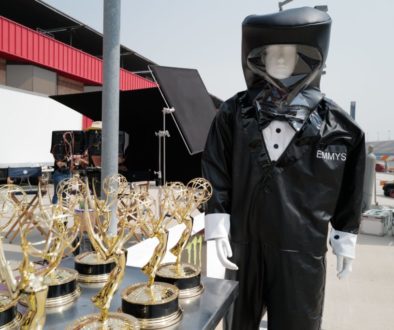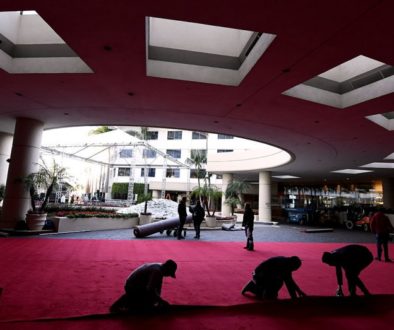Penny Dreadful, and a Blade of Grass
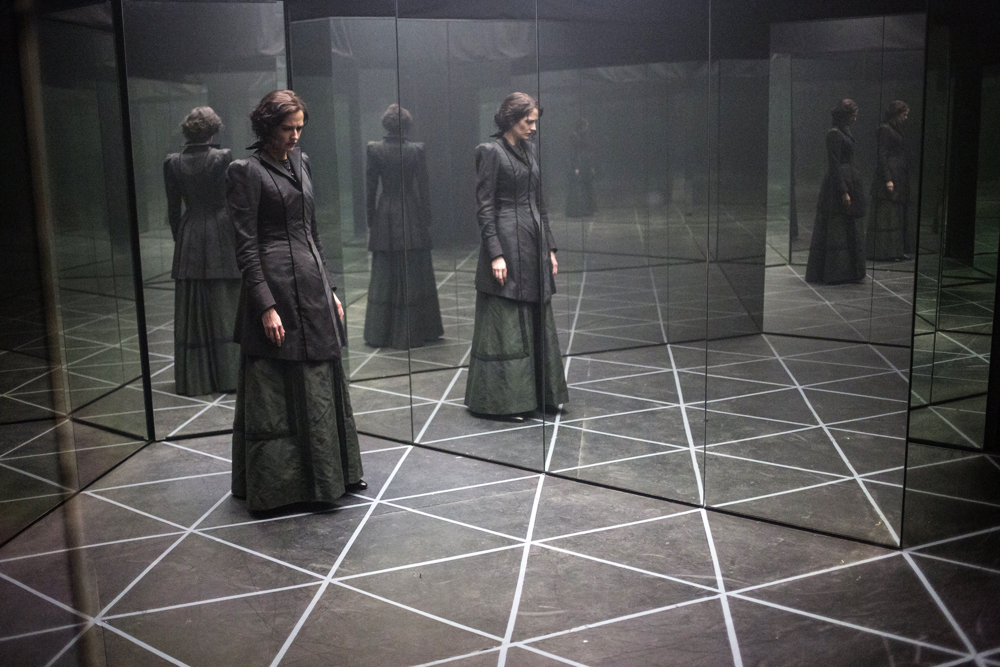
Penny Dreadful, that glorious bastion of subtext-made-text, ended this past weekend, bringing a three-season fascination with Vanessa Ives to a close. The series finale was…a disappointment.
I wrote about the problems with this arc in a piece at Salon, so we don’t need to rehash all of it here, but I do want to dig into a few specifics.
We’ll start with this picture of The Big Moment, because it gets to the heart of my ambivalence.
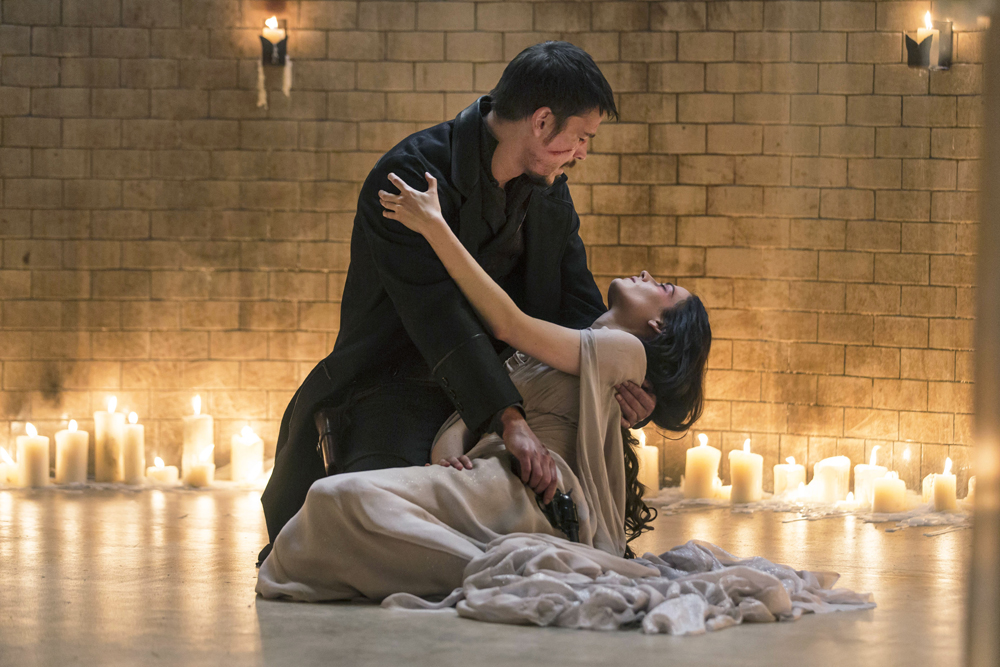
Is that a stunning, Gothic moment? Hell yes it is, look at that shit. When Ethan lifts her corpse and carries her out of there he’s going to have to keep kicking her fifteen-foot Virgin Queen of Hell train out of the way with his foot, it’s that Gothic.
Is that where this season’s narrative was leading us? Oh, it sure was not.
I will say this as often as I need to say it, since there’s some weird pushback in the Salon comments that I’m just mad because I didn’t want a downer ending: while there is power in Vanessa surviving – probably more power than the show realized, despite it being a narrative about misfits trying hard to build families and be as human as possible – there is also a perfectly good narrative arc that ends in her death. The series, as a whole, was certainly leading to Vanessa’s possible demise. This is a Gothic. None of the possible arcs that end with Vanessa’s death, however, are the one that played out over the third season. End of the second season, when she’s given her all to defeating the devil and his witches before they can harm anyone else? Sure. A nice angry fuck-you suicide to prevent Dracula from assuming the throne of darkness? Be my guest.
But the third season – which was a mess in almost too many ways to count – had the strong spine of Vanessa healing. There was peripheral healing, but every instance of it was twisted or hollow. Lily sought it in revenge and ended up having to settle for the healing of a relationship she was grossly manipulated into even back when she was a corpse; Malcom got to reap a fatherhood and hero position he hadn’t earned by a long shot; Ethan got to settle the score with his father in some very uncomfortable deconstruction of the American West that the show seemed blithely unaware was as cringey as it was. All of them struggled to heal, with very little achievement. Lily ends the series alone, having reconciled with the man she hates most in the world (and the other man she hates most in the world); Malcolm loses his daughtergirlfriend after a season of being apart from her and weakening our memory of why that loss would even sting. Ethan healed because the plot literally ran out of room for him to agonize.
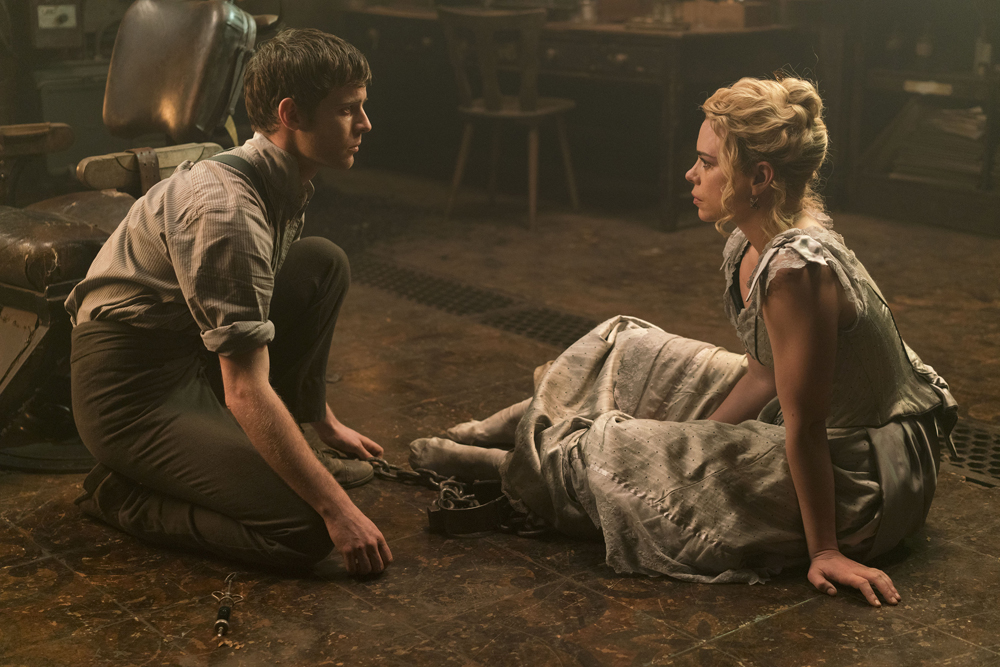
But Vanessa? Vanessa started in the depths of a very pedestrian depression, and had to learn how to pull out of it without religious faith to sustain her. And she did. She healed.
Dr. Seward was a great addition in terms of both dry humor and being the disbelieving set of eyes among a cast of characters who have seen so much cumulative bullshit that the actual devil earns little more than a roll of the eyes. (This show has always regularly been great on a scene-by-scene level even when the wider narraitve was so often disappointing.) But Seward was also a magnificent character for Vanessa to have here, because Vanessa’s world since Mina has been pointedly male. Here, she had a woman’s insight and support, and that became deeply important to her as she opened her mind.
And Vanessa also had the support of the Creature. Their relationship was a highlight of last season – a true, weird friendship that was the first he’d ever had with a woman, and one of the few relationships she had that allowed her to swing between her parlor manners and her deepest doubts and find acceptance either way. (Dr. Lyle should be on this list, too – he got some of the best lines of the season in the premiere – but the show was too busy introducing new characters and constructing a ridiculous denouement to think of anything else for him to do, and just cut that magnificent golden dinghy loose.)
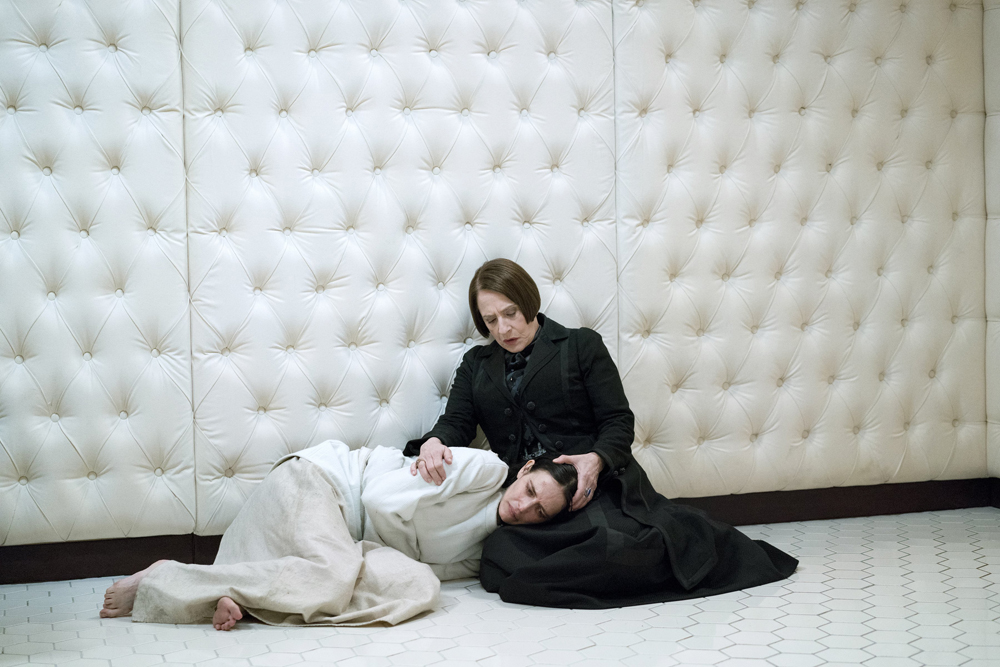
“A Blade of Grass,” the season’s third episode, brings all these elements marvelously together. It gives us Vanessa at her nadir, having to fight her way out of the past while also reliving the horrors the Victorian asylum visited upon her. (Honestly, the demons of Hell barely rated.) Dr. Seward struggles to keep her mindful of the present, but when that fails, she refuses to leave Vanessa in the dark: “Be true.” And in the past itself, Vanessa’s relationship with the Orderly (series-best performances from Eva Green and Rory Kinnear in what’s essentially a stage play) slowly and painfully unfolds into an end we already know.
Aside from some very clever staging to separate Vanessa’s moments of present-day lucidity from the flashback over which she has no power, this episode does a lot of heavy lifting about the limits of religion when everyone around you is subjecting you to Hell already (not just the discomfort, but the loss of autonomy and the loss of self that echoes so horrifyingly in the episode’s details). Her relationship with the Orderly – particularly the heartbreaking scene with the makeup, which is awkward but deeply felt – gives us crucial insight into why Vanessa was the armored woman we saw in the early episodes of the series, and why she’s so afraid to be anything else or to trust her happiness: somehow, it comes at someone else’s expense.
But Vanessa prevails. This friendship from Seward and the Orderly can’t stop anything that’s happening to her, of course – she still suffers horribly, which is saying something in a show that gave Eva Green a fifteen-minute séance possession in its second episode and has only asked more of her as we’ve gone along. She is still, in the ways that matter, alone. But when Hell comes to get her, Vanessa says no. It’s that simple.
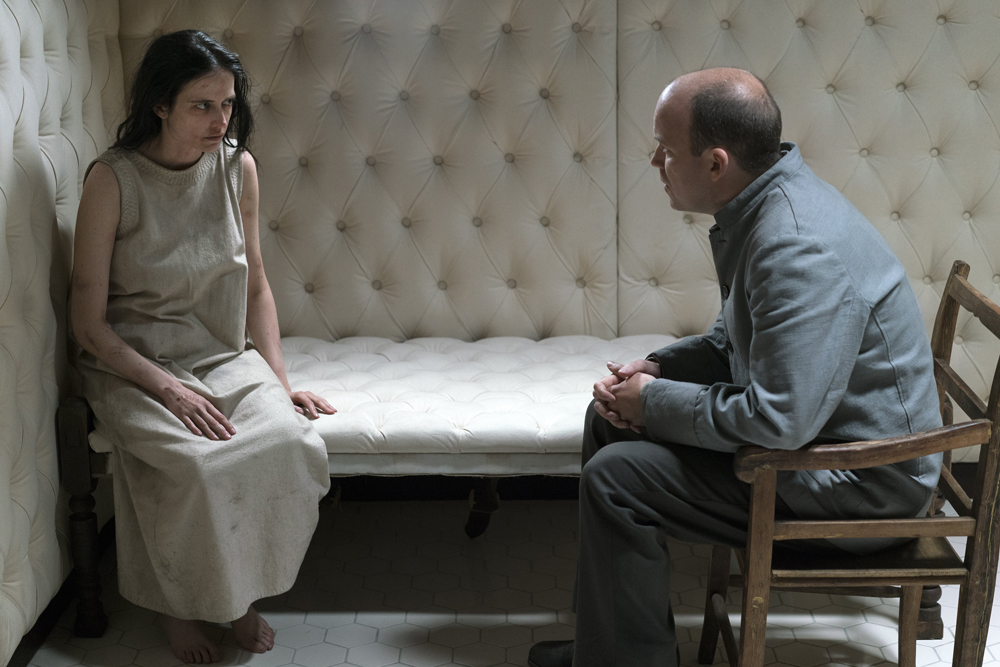
It’s such a powerful moment in the series, coming at the end of a powerful story about the transformative nature of empathy. At her lowest point, Vanessa’s loss of faith is replaced by faith in herself. After feeling like the plaything of the Bible, it’s a bold statement. A blade of grass is enough.
How things go from there is disappointing (as I note at Salon); plot points for the sake of forcing an outcome rather than a story aware of what came before it. But the fact that the Victorian tropes that make such an unsatisfying end for Vanessa still manage to call back to “A Blade of Grass” is actually a reminder of why so much of this show worked when it shouldn’t have: It didn’t so much cover plot holes as ignore them and deliver a moment of glorious Victorian staging and A-level acting instead, hoping you’d forgive. And I would be lying if I said the final moments of this series weren’t both visually striking and emotionally resonant, as the Creature, poleaxed by the realization Vanessa’s gone, pays his last respects.
(Yes, he’s dropping off the body of his son in the Thames first; this show was never subtle.)
The whole funeral is beautifully done; some great shots, and the poem nicely chosen and flawlessly delivered. I love that the Creature at the grave of someone he cared for even echoes Dorian and Lily’s last conversation about how their immortality means watching everyone you love wither and die. (This scene also brings home a lot of small, weird, sad realizations, like: I’m not sure she ever mentioned any specifics to him about her gift or the dangers around them. Everything was couched in so much rhetoric it might have read as a metaphor. He honestly might not know a thing about it. For him, maybe the air was just poison for a week, and then that was over, and also at some point Vanessa died.)
The finale is deeply unsatisfying, but this scene, if it can be taken alone, seems fitting. I love that the show recognized that the development between the two of them was the series’ greatest serendipity, and that the Creature sends her off with a poem she’d have loved to talk about. It’s not enough – it’s never going to be enough to fix almost a season of drowning slowly under one’s own Gothic instincts. But it was a human moment, and the show was at its best when it thought in such small terms: what it means to be alone, and how it changes you to find other people you can be alone with.

